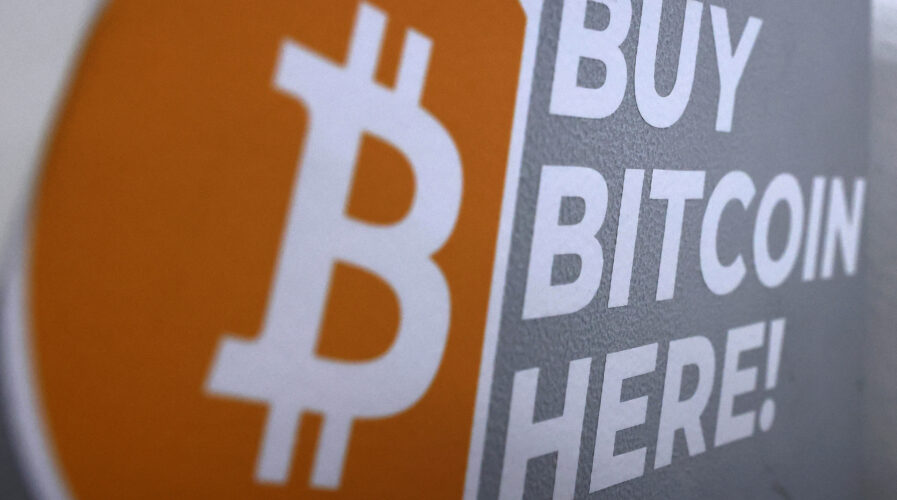
(Photo by MARIO TAMA / GETTY IMAGES NORTH AMERICA / Getty Images via AFP)
The Ripple effect for crypto assets
As crypto-assets increase, customers will want to have a platform to buy, sell and hold them. In Southeast Asia, the use of crypto is becoming increasingly popular. For example in Singapore, reports showed that Singaporeans are increasingly using cryptocurrency as a form of payment for some products.
Even in Australia, a country where crypto-assets continue to see immense activity, the Commonwealth Bank of Australia announced that they will enable crypto trading services on the bank’s app for customers.
Mastercard has also announced that it is partnering with three Asian crypto companies to launch bitcoin payment cards. They include Hong Kong’s crypto finance firm Amber Group, Thailand’s crypto exchange Bitkub and Australia’s trading platform, Coinjar.
The partnership intends to introduce cryptocurrency-linked credit, debit, and prepaid cards for both individuals and businesses across the Asia Pacific. Cardholders will be able to instantly convert bitcoin and other digital currencies into fiat currencies, which can then be spent online or offline with any of the merchants that accept Mastercard payments.
Yet, despite the increased usage and demand for crypto assets management platforms and such, Binance, which is the world’s largest crypto trading exchange has been banned in some countries in Southeast Asia. In fact, China has also announced a complete halt to crypto trading and has begun cracking down on privately mined cryptocurrencies.
The Monetary Authority of Singapore (MAS) also warned of sharp speculative wings and potential risks for retail investors who invest in cryptocurrencies. Speaking at the Singapore Fintech Festival, Ravi Menon, managing director of MAS said the Singapore central bank “frowns on cryptocurrencies or tokens as an investment asset for retail investors”.
Interestingly though, according to the Crypto Asset Management Market 2021-2025, the global crypto asset management market size is projected to grow to US$1.2 billion by 2026, with the APAC region expected to provide significant growth opportunities for vendors operating in the cryptocurrency management market during the forecast period.

(Photo by Ozan KOSE / AFP)
The report highlighted that rapid advancements in the network infrastructure, cloud computing, economic growth, and stable geopolitical system have provided a platform for the growth of solution providers in the APAC region.
Also, mobile apps created for exchanging cryptocurrencies have been making things easier for asset traders and miners. There have been several stock market apps that now feature cryptocurrency apps which not only allow to have total control over the digital assets but trade with them. When powered by blockchain, these cryptocurrencies can be used for all sorts of payments and transactions.
The report also showed that electronic wallet apps tend to store digital assets and money allowing the user to spend on transactions involving blockchain technology. These digital asset tracker apps are trying hard to provide updated information about the rates, trades, market dynamics, and a portfolio of various cryptocurrencies. Examples of crypto asset management providers include Coinbase, Gemini, and Crypto Finance, Vo1t, and BitGo.
Buying, selling, and trading crypto assets
As such, Ripple, a provider of enterprise blockchain and crypto solutions, will be launching its Ripple Liquidity Hub in 2022. Currently available in preview mode, the solution will allow customers to seamlessly access crypto assets from a variety of global venues, including market makers, exchanges, OTC desks, and in the future decentralized venues. The product will support turn-key integration and smart order routing to source digital assets at optimized prices giving customers the ability to easily buy, sell, and hold crypto assets.
For nearly two years Ripple has leveraged Liquidity Hub for internal liquidity management as part of its On-Demand Liquidity product, powering millions of transactions, worth billions of dollars. Now Ripple will make the product available for its hundreds of customers globally, as well as any financial institutions, banks, fintech, or corporates who need support preparing for an inevitable crypto-first world.
“We understand firsthand the need for easy and efficient liquidity management – and as such, we’ve received questions from our customers who require solutions that can be a one-stop-shop to buy, sell and hold crypto assets. The combination of Ripple’s crypto DNA and long history working with financial institutions makes us uniquely positioned to address this problem for our customers as they prepare for a tokenized future,” said RippleNet GM Asheesh Birla.
Unlike existing solutions available, Liquidity Hub is designed for enterprise customers and their unique needs through easy onboarding by offering a streamlined API for accessing digital assets from a breadth of liquidity pools. There will also be optimized pricing for a breadth of digital assets, enabling enterprises to provide their customers with the best price from a variety of liquidity venues. Enterprises won’t be required to pre-fund accounts for Liquidity Hub and can receive access to working capital through Ripple to fund their business operations.
Ripple’s first partner of the alpha product is Coinme, the largest licensed cryptocurrency cash network in the U.S., with thousands of locations across the country. Initially, Coinme will utilize the underlying technology platform of Liquidity Hub, with plans to unlock additional functionality as it becomes available.
READ MORE
- 3 Steps to Successfully Automate Copilot for Microsoft 365 Implementation
- Trustworthy AI – the Promise of Enterprise-Friendly Generative Machine Learning with Dell and NVIDIA
- Strategies for Democratizing GenAI
- The criticality of endpoint management in cybersecurity and operations
- Ethical AI: The renewed importance of safeguarding data and customer privacy in Generative AI applications


